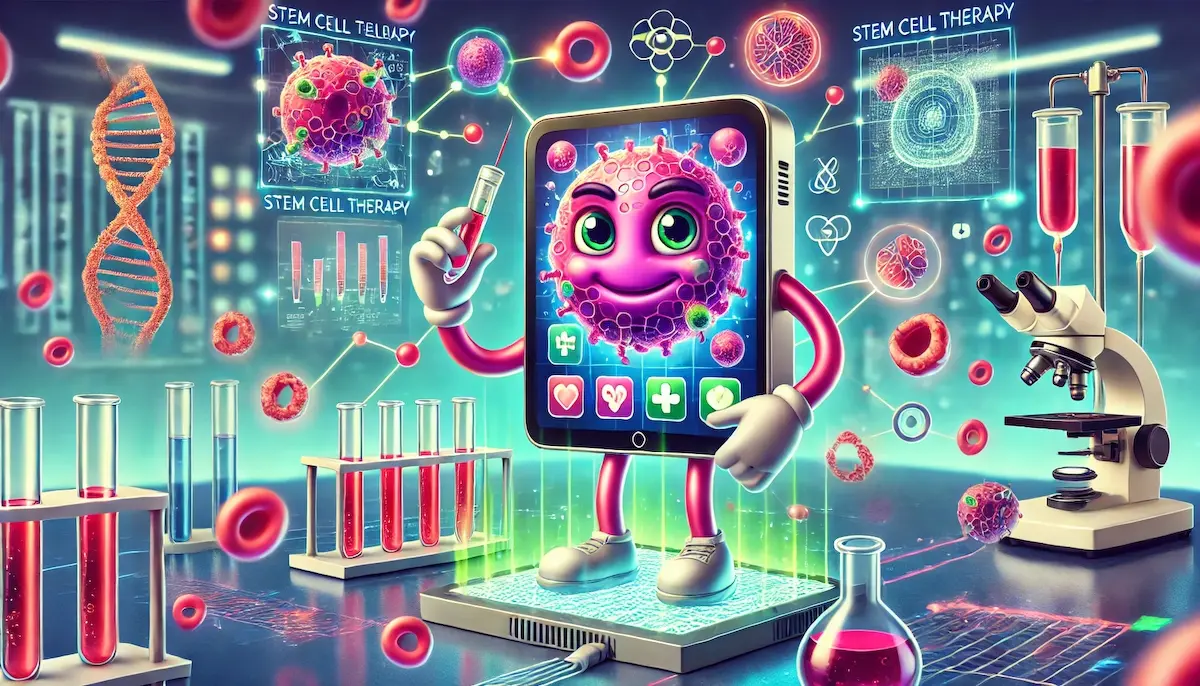Stem cell therapy is an innovative and rapidly advancing field in regenerative medicine that aims to repair, replace, or regenerate damaged tissues and organs using stem cells. This groundbreaking approach has the potential to treat a wide range of diseases and injuries, offering new hope for patients with conditions that currently have limited treatment options.
What is Stem Cell Therapy?
Stem cell therapy involves using stem cells, which are unique cells capable of developing into various cell types in the body, to repair or replace damaged tissues. There are two main types of stem cells used in therapy: embryonic stem cells (ESCs) and adult stem cells (ASCs), including induced pluripotent stem cells (iPSCs).
Types of Stem Cells
Embryonic Stem Cells (ESCs)
ESCs are derived from early-stage embryos and have the ability to develop into any cell type in the body (pluripotency). They hold great promise for regenerative medicine but also raise ethical concerns due to their source.
Adult Stem Cells (ASCs)
ASCs, found in various tissues like bone marrow and fat, are more limited in their ability to differentiate (multipotency) compared to ESCs. However, they are widely used in therapies because they are easier to obtain and pose fewer ethical issues.
Induced Pluripotent Stem Cells (iPSCs)
iPSCs are adult cells that have been genetically reprogrammed to an embryonic stem cell-like state. They can differentiate into any cell type and offer the advantages of ESCs without the associated ethical concerns.
Applications of Stem Cell Therapy
Regenerative Medicine
Stem cell therapy is at the forefront of regenerative medicine, aiming to repair or replace damaged tissues and organs. This includes treatments for conditions such as heart disease, spinal cord injuries, and neurodegenerative disorders like Parkinson’s disease.
Orthopedics
In orthopedics, stem cell therapy is used to treat injuries and degenerative conditions of the musculoskeletal system, including osteoarthritis and cartilage damage. Mesenchymal stem cells (MSCs) from bone marrow or fat are commonly used to promote tissue repair and reduce inflammation.
Hematology
Hematopoietic stem cell transplantation (HSCT) is a well-established treatment for blood disorders such as leukemia, lymphoma, and multiple myeloma. This procedure involves replacing diseased or damaged bone marrow with healthy stem cells to restore normal blood cell production.
Ophthalmology
Stem cell therapy holds promise for treating eye diseases and injuries, including macular degeneration, glaucoma, and corneal damage. Research is ongoing to develop effective treatments that can restore vision by regenerating damaged eye tissues.
Dermatology
Stem cells are used in dermatology to treat burns, chronic wounds, and skin disorders. Skin grafts and tissue-engineered skin substitutes created from stem cells can accelerate healing and improve outcomes for patients with severe skin injuries.
Benefits of Stem Cell Therapy
Potential to Cure Diseases
Stem cell therapy offers the potential to cure diseases that currently have no effective treatments. By regenerating damaged tissues and organs, it can address the underlying causes of conditions rather than just managing symptoms.
Reduced Need for Transplants
Stem cell therapy can reduce the need for organ transplants by repairing damaged tissues in situ. This approach minimizes the risk of organ rejection and the need for lifelong immunosuppressive therapy.
Personalized Treatment
Stem cell therapy can be tailored to the individual patient, using their own cells (autologous stem cell therapy) to reduce the risk of immune rejection and complications. This personalized approach enhances the effectiveness and safety of treatments.
Advances in Research
Stem cell research is driving significant advances in our understanding of human biology and disease mechanisms. This knowledge is essential for developing new therapies and improving existing treatments.
Challenges and Future Prospects
Ethical Concerns
The use of embryonic stem cells raises ethical issues related to the destruction of embryos. Balancing the potential benefits of ESCs with ethical considerations is crucial for the responsible development of stem cell therapies.
Safety and Efficacy
Ensuring the safety and efficacy of stem cell therapies is a significant challenge. Potential risks include tumor formation, immune rejection, and unintended differentiation. Rigorous clinical trials and regulatory oversight are essential to address these concerns.
Cost and Accessibility
Stem cell therapies can be expensive, limiting accessibility for many patients. Efforts are needed to reduce costs and develop affordable treatment options to make these therapies widely available.
Standardization and Regulation
The field of stem cell therapy requires standardization and robust regulatory frameworks to ensure the quality, safety, and consistency of treatments. Establishing clear guidelines and protocols is essential for the widespread adoption of stem cell therapies.
The Future of Stem Cell Therapy
The future of stem cell therapy is promising, with ongoing research and technological advancements paving the way for new treatments and applications. As our understanding of stem cell biology improves, and as ethical, safety, and regulatory challenges are addressed, stem cell therapy has the potential to revolutionize medicine and transform the treatment of numerous diseases and injuries.
Blockfine thanks you for reading and hopes you found this article helpful.
